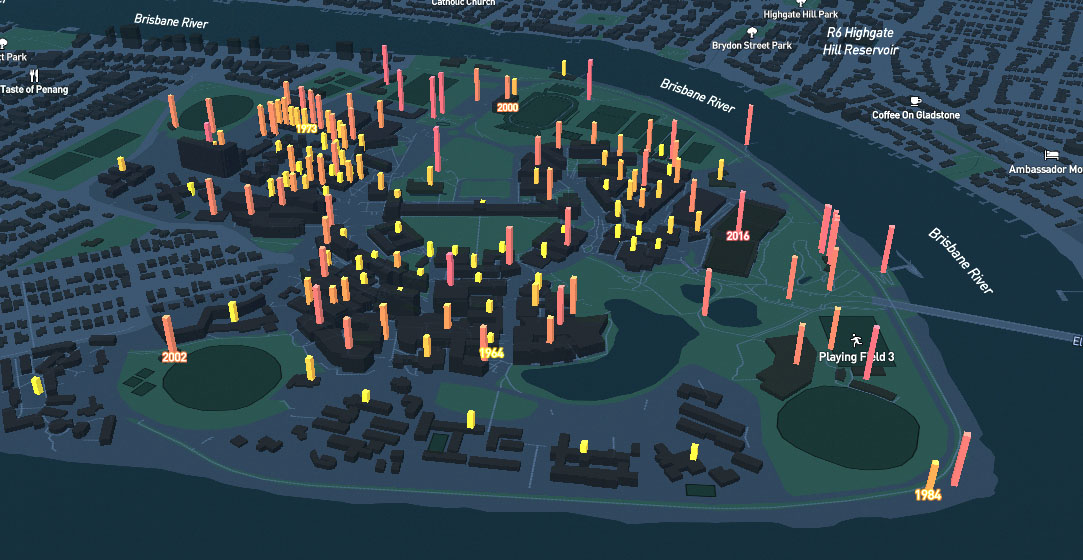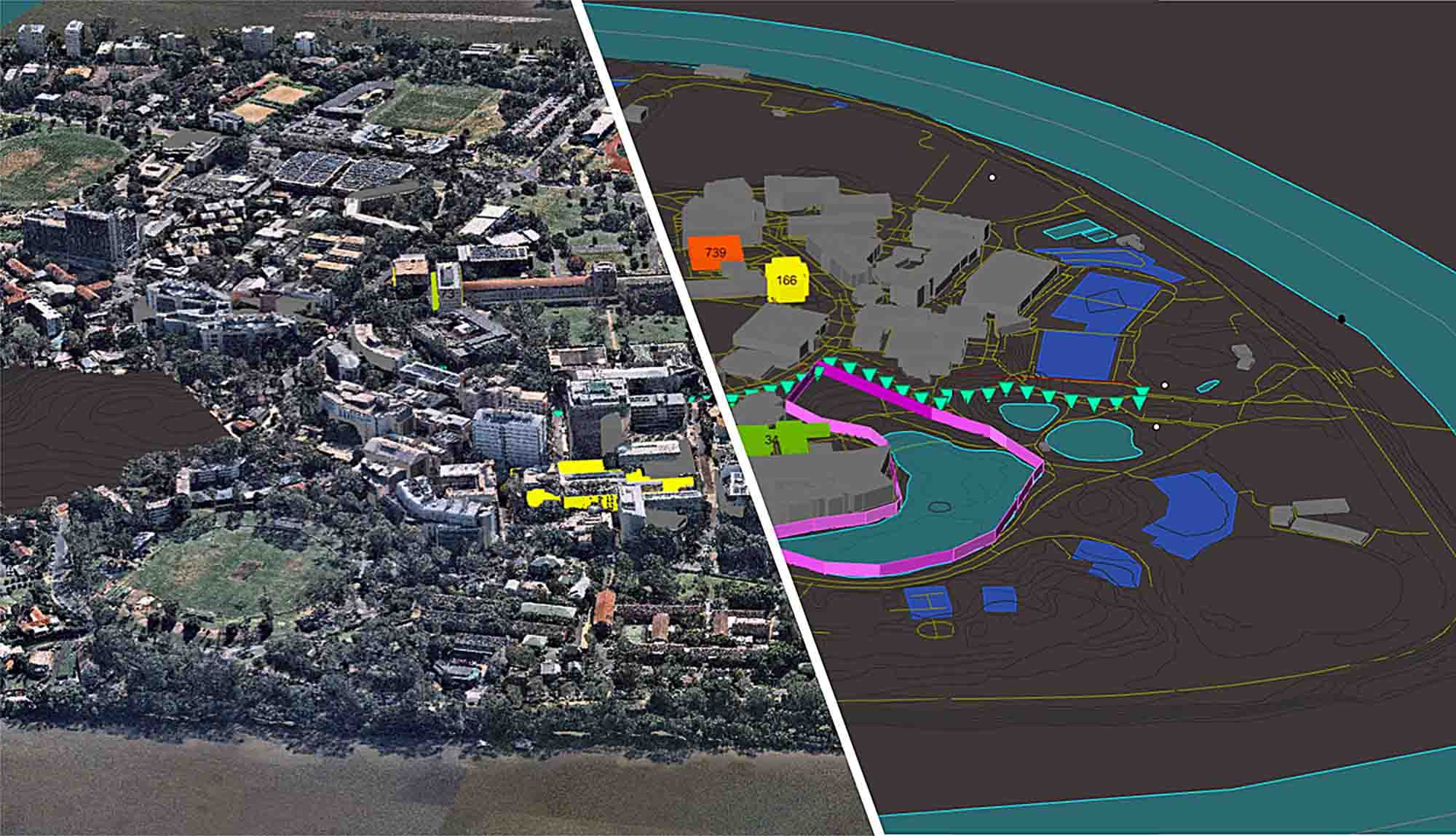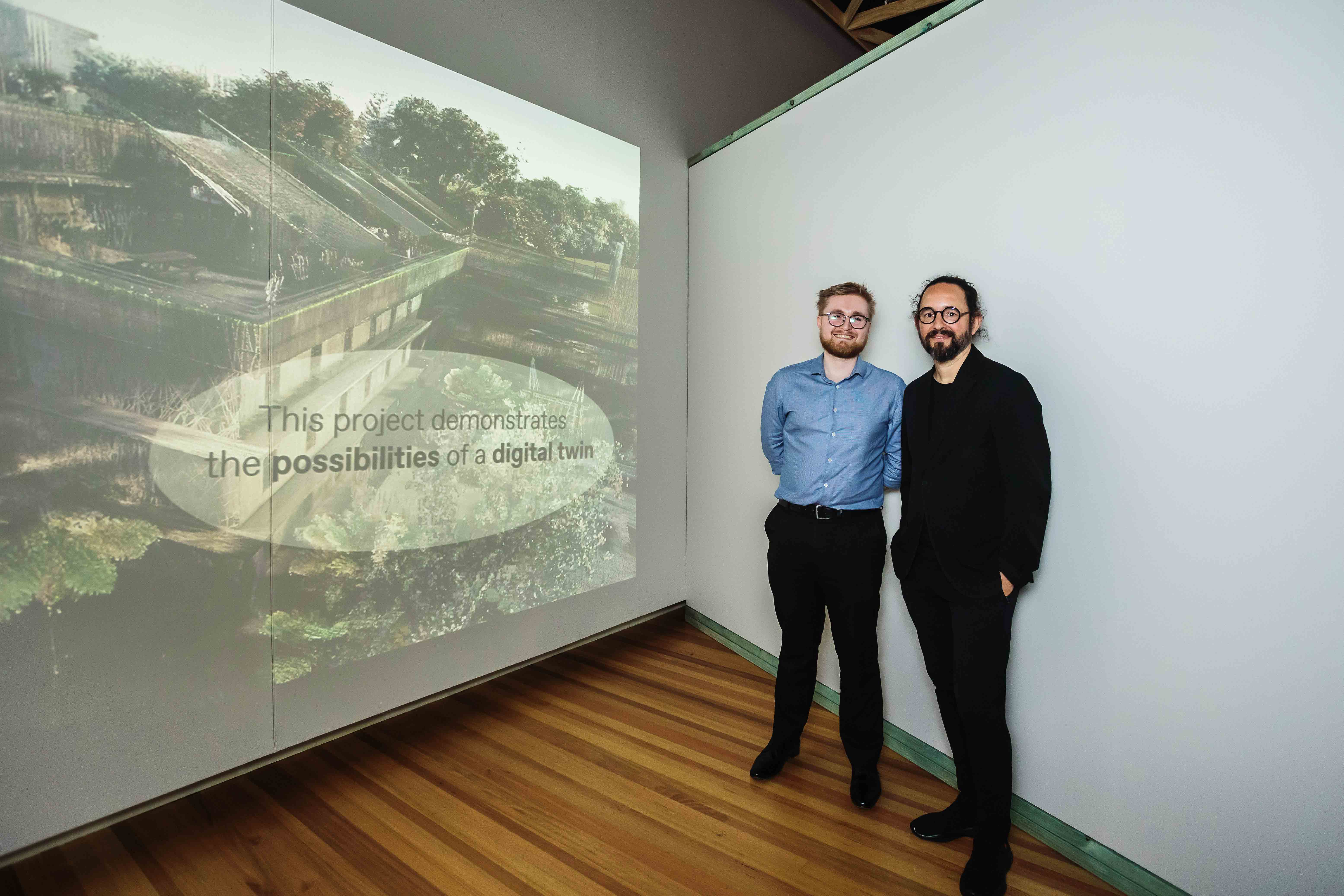Digital Twin of St Lucia Campus
Part of the exhibition Purpose Built: Architecture for a Better Tomorrow,
State Library of Queensland, Brisbane, 2 September–14 April 2024
Lead researchers: Dr Frederico Fialho Teixeira, Dr Isalm Mashaly, Dr Maryam Shafiei, Dr Jurij Karlovsek
Rapid progress in digitalisation and artificial intelligence is providing numerous opportunities for human-interaction research. Connecting the real world to the digital world using digital twins is one such opportunity that is more feasible than ever before thanks to increased availability of sensor information, allowing new applications in many different areas to be explored.
For this research project, existing data from various locations at UQ’s St Lucia Campus was utilised, and new data generated, to model, simulate and forecast changes around campus. These models include flood simulations, mobility around campus and how it’s affected by construction, building occupancy assessment with spatial data, and mapping of building age in relation to campus infrastructure.


This facilitated the discovery of key opportunities for efficiency in campus management, such as the use of 3D point-clouds for Properties and Facilities, and also developed reproducible workflows to enable adaptation at scale. Additionally, it highlighted the benefits of cross-departmental collaboration in the University as staff from Architecture, Civil Engineering, EECS and Properties & Facilities collaborated to generate optimal outcomes.
This project demonstrates what the future of built environment management can look like. It showcases the possibilities of digital twin technology in the strategic management of the Campus and its facilities, and presents UQ a pilot study for broader-scale application of spatially enabled digital twins at the urban scale.

Video – UQ's Digital Twin: Rethinking Campus Management
Interview – Dr Frederico Fialho Teixeira
| Researchers | Dr Frederico Fialho Teixeira Dr Isalm Mashaly Dr Maryam Shafiei Dr Jurij Karlovsek |
| Collaborators | UQ Properties & Facilities UQ School of Civil Engineering UQ School of Electrical Engineering and Computer Science (EECS) UQ School of Earth and Environmental Sciences UQ Global Change Institute UQ Infrastructure Co-Lab |
